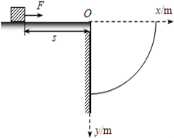论述信息、反馈和控制的关系。
参考答案:
首先,信息、反馈与控制的关系是相当密切的。
(1)控制依赖于信息,没有信息就没有控制。只有有效地进行信息控制,才能更好地发挥信息的作用。
(2)控制离不开反馈,没有反馈就无法控制。反馈是联系信息与控制的桥梁。
其次,信息反馈控制的要求包括以下三个方面:
(1)反馈信息真实准确。反馈信息是管理者用于管理控制的依据,如果出现不真实、不准确的反馈信息,势必会造成控制决策的错误。
(2)信息传递迅速及时。如果反馈信息传递的迟缓,就会延缓反馈控制的实施,使管理工作中的问题得不到迅速及时的纠正,给工作造成损失。
(3)控制措施适当有效。控制措施是由管理者做出的,反馈信息本身并不会表示出应该如何进行控制。所以适当有效的控制措施是做好信息反馈工作的根本。
第三,在控制过程中,信息的作用通过前馈和反馈两种方式来体现。所谓前馈是指在系统目前状态的基础上,预先规定在未来某一时刻系统应处的状态,在达到这一时刻时,根据现实状态与预定状态的偏差采取调节措施。所谓反馈是指为了保持自身的某种状态,把测得的系统状态的信息作为输入信息,去决定采取何种调节措施。从控制的类型看,前馈用于改变系统的状态,而反馈则用于维持系统的状态。
第四,要实现控制的目的,必须不断解决“系统的偏差与反馈控制措施”之间的矛盾。反馈控制措施的实施,可能产生两种不同的效果。正反馈是系统偏差不断扩大的过程,而负反馈则是不断消除系统偏差的过程。负反馈的机制是使系统的输出始终趋向于它的目标,而正反馈的机制则是使系统的输出偏离它的目标。我们不仅应该重视负反馈,同时也应该注意不能忽视正反馈。
第五,信息反馈控制系统是一个开放式的循环系统。对某一种信息的反馈控制,也可理解为对另一种信息的前馈控制。换言之,简单的反馈控制系统衡量一次运行过程的信息产生、流通、使用的情况,而高级的反馈系统所衡量的是两次以上运行过程的信息、流通、使用的情况。
控制系统普遍存在时滞现象,所以仅仅用系统的输出信息的反馈,并通过衡量这一输出与既定目标之间的偏差作为控制手段是不够的。要使控制有效,就必须采取一种面向未来的控制方法。前馈可克服因时滞所带来的缺陷,它是控制原因而不控制结果。而简单的反馈是控制结果而不是控制原因,它是在偏差已经发生时,才采取措施来实施控制的,而此时损失已经造成。控制要做到及时性,就必须依靠现代化的信息管理系统,随时传递信息,随时掌握工作进度,如此才能尽早发现偏差,进而及时采取措施进行控制。
概括起来,信息过程是人们认识世界的思维活动,控制过程是人们改造世界的实践活动,而反馈是实现再认识、再实践的中间环节,它把认识世界和改造世界的活动进一步联系起来。在一定意义上说,管理过程就是利用信息进行控制的过程,管理系统只有通过反馈实现信息流程的再循环,才能不断提高信息的价值,达到管理的最终目的。

